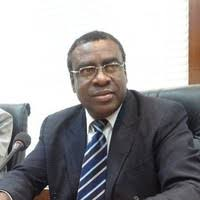Rights of citizens to live, work anywhere within Nigeria

When the colonizers handed over government to Nigerians in 1960, they left us with three regional governments and a relatively weak centre headed by a prime minister and his cabinet.
The regional governments were demarcated largely along ethnic lines into the Northern, Eastern, and Western Regions; each with its own constitution.
Indeed, it was as a result of agreements between/among the regional leaders and the British government that the regions agreed to go for independence as one united country.
At the time, the regions were very strong, until the military came on the scene and strengthened the central government by de-emphasising the regional setup, creating a new, single Constitution and establishing the Native Authority.
The military broke up the country into states, further weakening the regions.
When Obasanjo became the head of state in 1976, he introduced the Land Use Decree, vesting ownership of all lands and resources in the hands of the state and federal governments, further strengthening the centre.
According to the new Constitution and its subsequent amendments, every Nigerian as a citizen is entitled to live and work anywhere within the country.
Recently, with the aftermath of the #EndSARS protest(s), certain groups of people from different parts of the country have been issuing warnings to other Nigerians who are not from the same part of the country to leave their land and head back to their origins.
In response, President Muhammadu Buhari reminded Nigerians of the provision of the Constitution that allows all citizens to live and work freely in any part of the country.
Obviously, the President’s utterances are in order. However, contradictions in the Constitution undermine such a decree.
A Constitution that gives its citizens such a right should not also insist on so-called “Federal Character” in terms of employment into the civil service, military or the police force; or enrollment into schools etc.
All application forms ask for one’s “State of Origin”, and applicants must present indigeneship certificates to authenticate their claim.
This means that the government does not itself operate only with citizenship in mind, but with ethnic and sectional identity as well.
By extension, even if the old regions themselves have been dismantled, the mentality behind them is stronger than ever.
This is because the states themselves are demarcated along traditional administrative lines.
For example, in the north, states were created along emirate lines.
They were not just arbitrarily drawn on the map. Indeed, where part of an old emirate was broken off to create a new state, a new emirate would immediately be established for the new state.
This means that the Nigerian mentality is still one that is deeply concerned about its origins.
The Indigeneship Certificate allows one to authenticate their ancestry and, implicitly, their ethnicity.
With the primary importance attached to indigeneship, is it any wonder that Nigerians have continued to see their identities more as a factor of their ethnicity than of their nationality?
Merit alone is not enough to get one a job or an admission into university.
One’s state of origin plays a role because of what we call “Federal Character” and “Catchment Area”, etc.
Clearly, the Constitution needs to be amended to address this. Until this is done, this thorny issue will continue to undermine the unity of Nigeria.
Yet, perhaps it is time to take an honest look at this entity we call Nigeria.
When we had our regional governments, their respective constitutions did address the peculiarities of their people by taking into cognizance their common ethnic, linguistic, religious and cultural backgrounds, along with the peculiar traditions and customs of the people.
The land and its resources belonged to the regions and from whatever revenue was generated by them, a certain determinate percentage was paid to the central government.
If we cannot go back to the regional governments, we can at least amend the constitution in such a way that the land would now belong to the people, not to the government.
Give the people access to the wealth in their land and let them pay royalties to the federal government from the revenues generated. When people do not have a sense of ownership, they would not have a sense of preservation, much less development.
This could explain why many Nigerians have a lackadaisical attitude towards “Government Property.”
READ ALSO: U.S removes reciprocity visa fees for Nigerians
There is no pride in preserving such property because the government has become almost a sort of arbitrary object.
It would be much preferable if the citizen would say to himself, for instance, “This land is the property of the Yoruba people, my people”.
Such a sense of identity and ownership will not only lead to a conservation and protection of resources, but will also foster a healthy competition among the regions.








